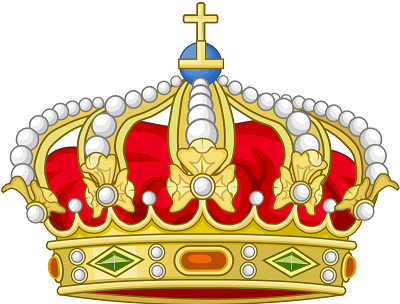A monarchy is a form of government in which a person, the monarch, is head of state for life or until abdication. The political legitimacy and authority of the monarch may vary from restricted and largely symbolic (constitutional monarchy), to fully autocratic (absolute monarchy), and can expand across the domains of the executive, legislative, and judicial. A monarchy can be a polity through unity, personal union, vassalage or federation, and monarchs can carry various titles such as emperor, king, queen, raja, khan, caliph, tsar, sultan, shah, or pharaoh.
In most cases, the succession of monarchies is hereditary, often building dynastic periods, however elective and self-proclaimed monarchies are possible. Aristocrats, though not inherent to monarchies, often serve as the pool of persons to draw the monarch from and fill the constituting institutions (e.g. diet and court), giving many monarchies oligarchic elements.
Monarchies were the most common form of government until the 20th century. Today forty-four sovereign nations in the world have a monarch, including sixteen Commonwealth realms that have Elizabeth II as the head of state. Other than that there are a range of sub-national monarchical entities. Modern monarchies tend to be constitutional monarchies, retaining under a constitution unique legal and ceremonial roles for the monarch, exercising limited or no political power, similar to heads of state in a parliamentary republic.
The opposing and alternative form of government to monarchy has become the republic.

